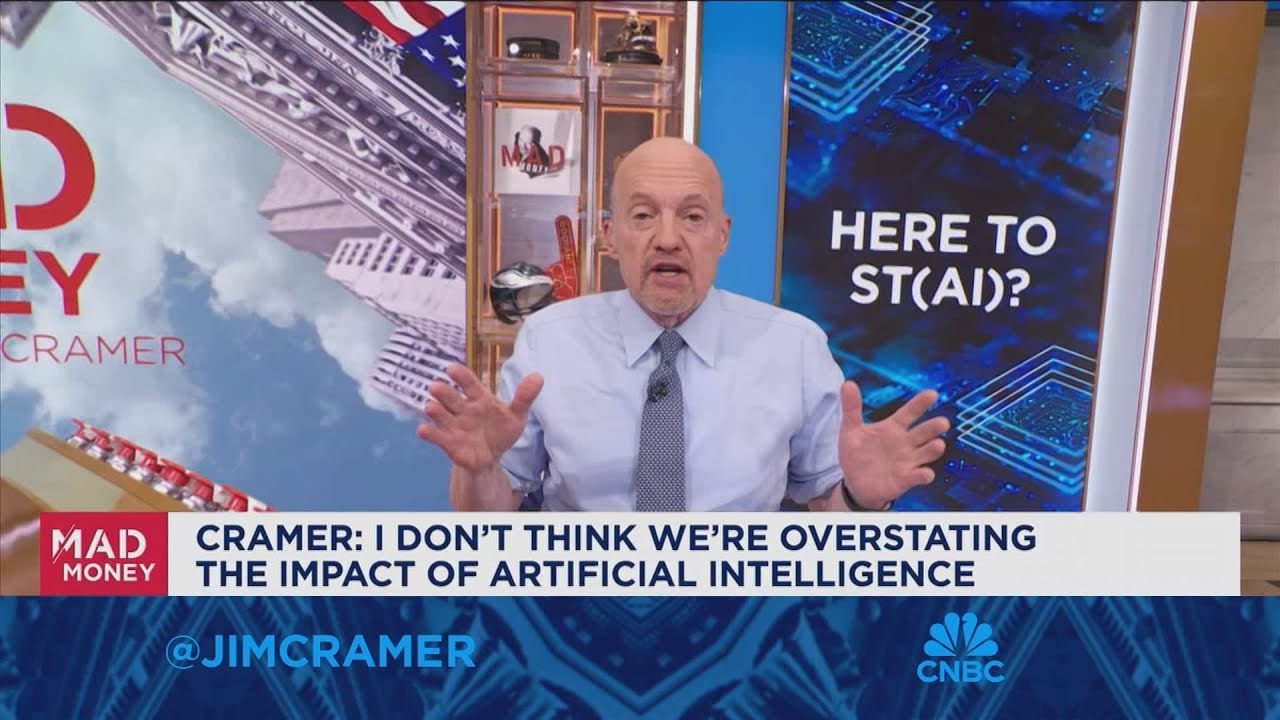Jim Cramer emphasizes that artificial intelligence (AI) will be a transformative force shaping the future economy and employment, urging viewers to consider its long-term implications beyond short-term market fluctuations. He highlights the importance of understanding AI’s potential impact through industry leaders like Nvidia’s CEO Jensen Huang, while also acknowledging concerns about job displacement and the disruptive effects AI could have on industries worldwide.
In the video, Jim Cramer discusses the significant impact of artificial intelligence (AI) on the future of the economy and employment. He emphasizes that whenever he considers the influence of AI, he realizes it is more substantial than he initially thought. Cramer suggests that AI is not just a fleeting trend but a transformative force that will shape industries and job markets in the coming years. He highlights the importance of understanding AI’s long-term implications rather than just focusing on short-term market movements.
Cramer notes that recent stock market declines, such as the Dow dropping 245 points and the S&P and Nasdaq experiencing declines, were influenced by geopolitical events, specifically President Trump’s actions regarding semiconductor manufacturing. Despite these short-term market fluctuations, he stresses that the real story lies in how AI will influence employment and economic structures over the next year and beyond. He urges viewers to consider AI as a critical factor in future economic planning and investment strategies.
He introduces Jensen Huang, CEO of Nvidia, as a key figure in the AI industry. Nvidia has recently reported strong quarterly results, and Huang’s insights are crucial for understanding both the immediate performance of AI companies and their long-term potential. Cramer plans to feature Huang to discuss how Nvidia’s advancements in AI technology could impact the nation and the world, including China, which is a significant player in the global tech landscape.
Cramer also references concerns raised by other AI entrepreneurs, such as Dario Amodei of Anthropic, who warns about the potential negative consequences of AI development. Amodei suggests that AI could eliminate a large portion of entry-level white-collar jobs in America, potentially leading to unemployment rates as high as 10-20%. While Cramer does not share a doomsday perspective, he acknowledges that AI’s disruptive potential could be profound and warrants serious consideration.
In conclusion, Cramer underscores the importance of factoring AI into our understanding of the future economy. He believes that AI is likely the most influential force shaping employment, industry, and global competitiveness in the years ahead. By engaging with industry leaders like Jensen Huang and paying attention to both optimistic and cautious viewpoints, he advocates for a balanced approach to navigating the AI-driven future.
